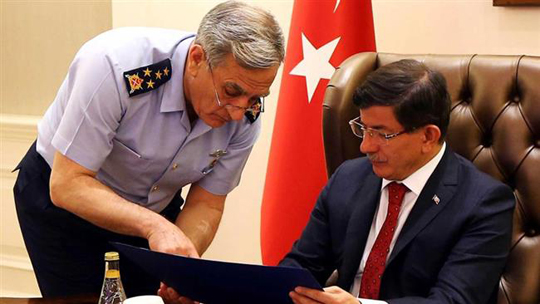
Turkey's former prime minister Ahmet Davutoglu being briefed by General Akin Öztürk
Turkey, Jul 17: A main suspect in the failed coup against the Turkish government formerly served as a military attaché to Israel, reports say.
General Akin Öztürk, also the former commander of Turkey's air force, was arrested on Saturday along with at least five other generals in connection to the failed coup.
From 1998 to 2000, Öztürk served in Turkey's Tel Aviv embassy and later went on to serve as the air force commander until he stepped down last year. He retained his seat in Turkey's Supreme Military Council.
Turkey has announced that Öztürk and his alleged partners will be tried over treason charges.
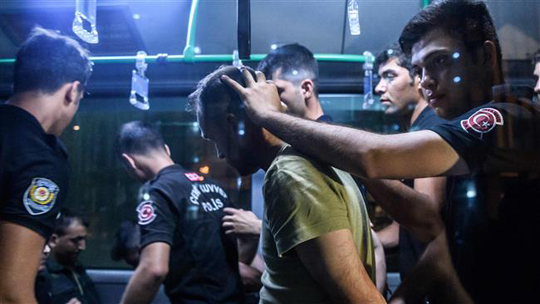
Turkish anti riot police officers detain a Turkish soldier who allegedly took part in a military coup as they are leaving in a bus the courthouse at Bakirkoy district in Istanbul on July 16, 2016.
According to Turkish Prime Minister Binali Yildirim, those behind the coup will not face the death penalty as it is against the country's constitution, but constitutional changes are being considered to block future coups.
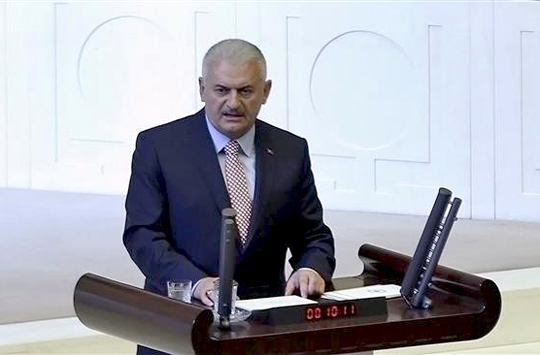
Turkish Prime Minister Binali Yildirim delivers a speech during an extraordinary session of the Turkish Parliament in Ankara on July 16, 2016, following a failed coup attempt.
Prior to the coup, Öztürk was a celebrated military figure, honored by medals from his own country and NATO.
The coup attempt started on Friday evening when tanks took up positions on two bridges over the Bosphorus Strait in Istanbul, blocking traffic.
On Saturday, Turkey announced that the failed attempt to seize control of the country by a faction of the armed forces is now over, with 2,839 soldiers, including high-ranking officers being arrested.
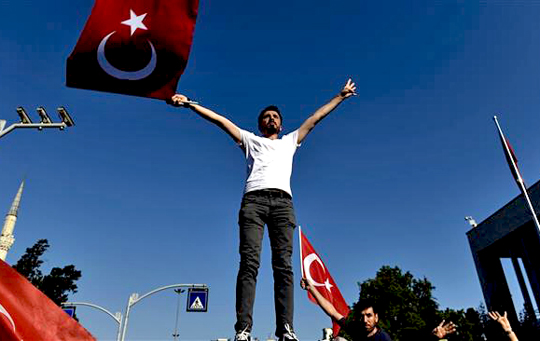
A man waves a Turkish flag during a demonstration in Istanbul in support of the government on July 16, 2016, following a failed coup attempt.
Yildirim also said that 161 people had been killed and 1,440 wounded in clashes in the night he called a “black stain on Turkish democracy.”





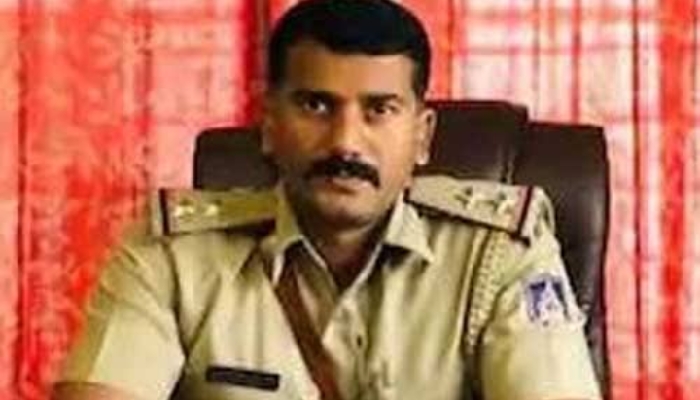
Comments
Long live Erdogan.........down down US-ISRAEL....for using contreversial figure Ahmed Gullen
Add new comment